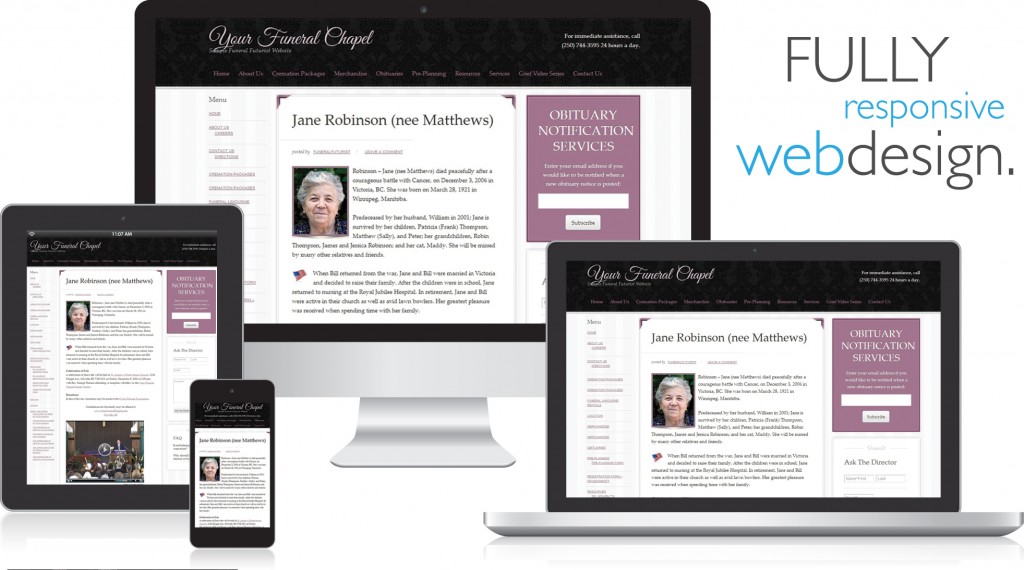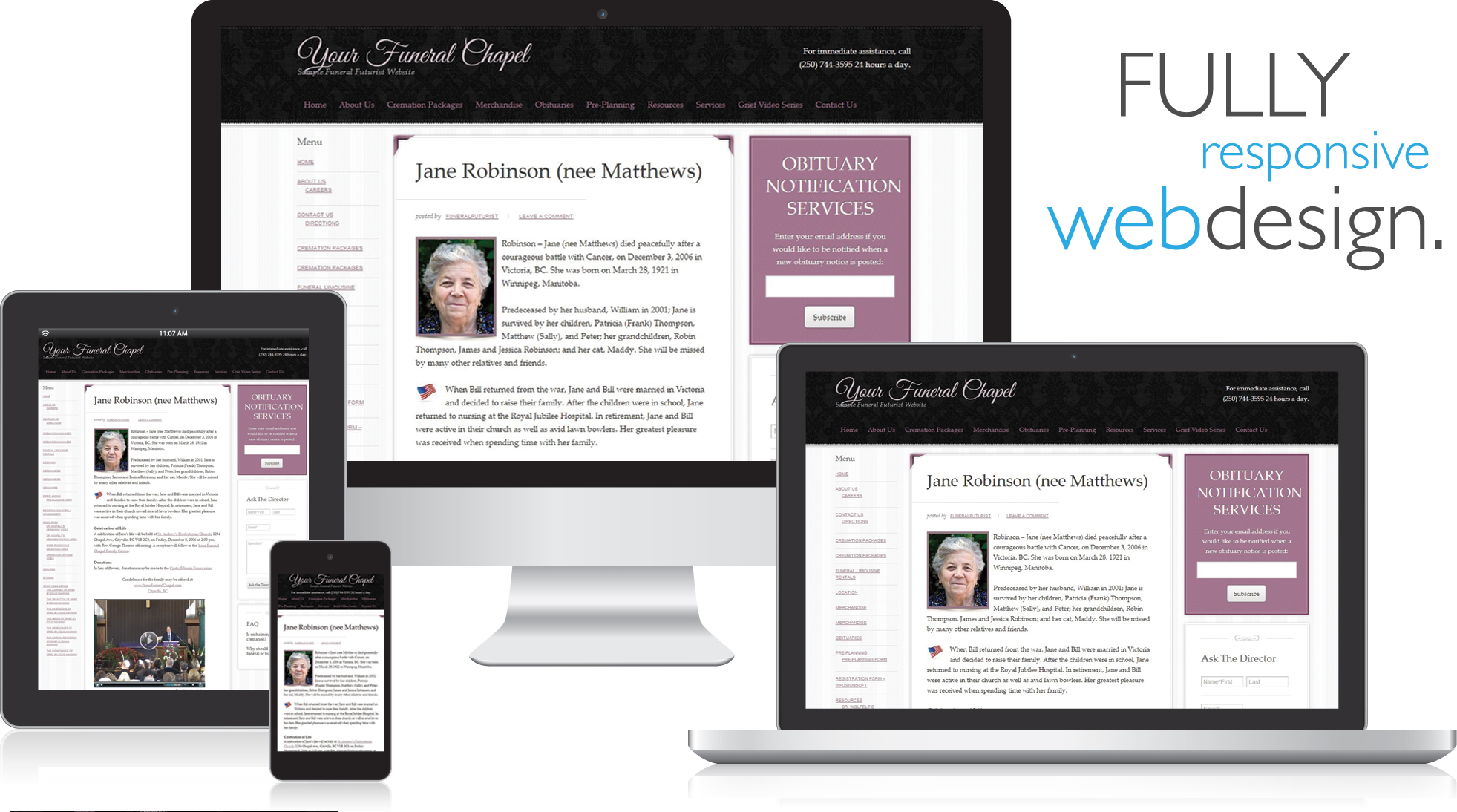In a previous article, I’ve shared with you the number one way to get extra traffic from Facebook – even without having a Facebook page or profile. If you need a refresher, all that you do is give your client families a sheet of paper at the arrangement conference and a 20 second tutorial on how to add their loved ones online obituary to their Facebook profile.
Please note that I did not say about sharing it on your Facebook page – even though you can do this it will be 10 times less effective than having the family doing it. The reason why is that the people following your Facebook page may know the deceased, but probably not. On the other hand, the daughter who shares her father’s obituary notice on her Facebook profile, will be of interest to almost all of her friends on Facebook. Multiply this by any other children or relatives of the deceased who do the same.
I have been sharing this strategy for over four years and those who practice it experience a huge spike in traffic. Recently I have been receiving comments from some funeral homes that this strategy doesn’t work well for people using mobile devices. The issue is for funeral homes who have a separate mobile version of their website. If the funeral home and the client family practice the strategy of pasting the link from the online obituary to their Facebook profile and then someone who is a friend of the survivor clicks on the link from their mobile device – expecting to go to the obituary – instead they end up at the homepage of the mobile version of the website. From there they have to navigate to find that particular obituary. The last thing that people want to do, especially on mobile device is have to go through extra navigation steps.
Another issue that has been brought to my attention is that if someone is using a tablet such as an iPad mini, these users are getting redirected to the mobile version of the site which is a scaled down, less graphically friendly, website.
So why should you worry about mobile Facebook users?
In its Q4 2013 Quarterly Earnings conference call, Facebook stated that out of the 1.228 billion monthly active users, there are 945 million (77%) mobile users and almost one-third of them only use their mobile device to visit Facebook.
The leading solution to fix this problem is to make sure that your website has a “mobile responsive” design. This is more than just being mobile friendly, mobile responsive means that the website conforms to the width of the device. So no matter what type of device the person is viewing your website on, whether it be a desktop computer, laptop, tablet, or a mobile phone, the website adjusts according to the width.
 For the larger screens the websites will be displayed in its normal layout. With smaller screens such as an iPad mini or iPhone the components will stacked on top of each other and the visitor can just easily scroll through the page.
For the larger screens the websites will be displayed in its normal layout. With smaller screens such as an iPad mini or iPhone the components will stacked on top of each other and the visitor can just easily scroll through the page.What is Google’s thoughts on mobile responsive websites?
This is an excerpt from Google’s section “Building Smartphone-Optimized Websites”
Regarding Responsive Design: serves the same HTML for one URL and uses CSS media queries to determine how the content is rendered on the client side. This removes the possible glitches of user-agent detection and frees users from redirects. This is Google’s recommended configuration. (Source: https://developers.google.com/ webmasters/smartphone-sites/)
This might seem a little technical, but it is important to listen to Google’s recommendations.
To view some samples of mobile responsive funeral home and cremation websites visit:
When visiting these websites on your tablet or mobile phone see how the sides and contents re-adjust when you rotate your device from portrait (up-and-down) to landscape (side to side). The other benefit that a mobile responsive website has is that the visitor does not need to zoom in and then zoom out by pinching their fingers on the screen nor do they have to scroll side to side when reading content.
So re-visiting the original issue of someone from their mobile device, clicking on a link in Facebook going to a online obituary, in the case of the mobile responsive website the visitor will go directly to that page and that page will conform to the device it is being viewed on.
For more information about mobile responsive websites, visit: www.FuneralGeeks.com/website-packages/


Leave a Reply